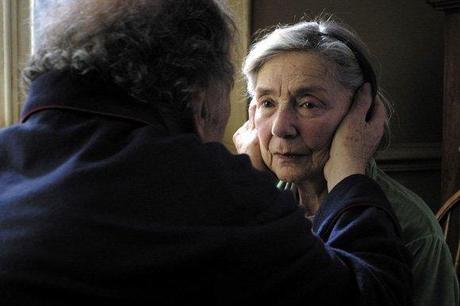
This year in Cannes, Michael Haneke became the 7th director in history to win the prestigious Palme D’Or twice, joining an elite group of directors including Francis Ford Coppola and The Dardenne Brothers. The first time he won was for his haunting WW2 film The White Ribbon (2009) and now Amour has taken the prize; an emotional heavyweight about a couple in their 80s.
Amour has been said to be Haneke’s most human film; intimate and moving in its depiction of life and love. However, it is also remorseless in its treatment of death, offering no respite to the average viewer.
Some people may go into Haneke’s film expecting a romance about a couple in their 80s, enjoying their cultured lifestyle in a beautiful apartment in Paris, going to piano recitals, reading good books, and basking in the memories of their lives spent together. These people are in for a horrible realisation.
No sooner than you are sitting comfortably in your seat, Anne has a series of strokes and Georges must become her sole carer. Things go from bad to worse when Georges becomes unable to care for his dying wife, as she turns suicidal and lies paralysed in bed yelling ‘Hurt! Hurt!’
Devastatingly real, the film offers an inescapable insight into a terrifying future for all involved. Despite its depressing message, Amour is masterfully put enacted by Jean-Louis Trintignant (a Cannes winner himself, for Z in 1969) and Emmanuelle Riva (Hiroshima Mon Amour), who convince as a couple whose love is so strong they can overcome anything; even death itself.
No one could chastise Haneke for creating a film so relentless in sentiment; instead he should be praised for making a secular film about life’s end that keeps its character’s dignity. Likewise, addressing the issue of euthanasia can be a difficult political touchstone, but Haneke manages it gracefully.
Although Amour may leave the viewer emotionally drained by its lack of rewarding tit bits (minus an exchange with a pigeon), this is not the cinema of torture or a film that intentionally punishes the viewer. Haneke’s film is sombre and terribly serious, but overwhelmingly romantic at the same time. Be prepared.
